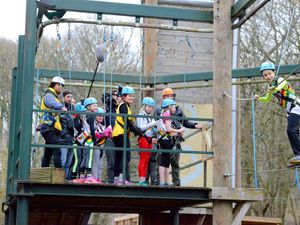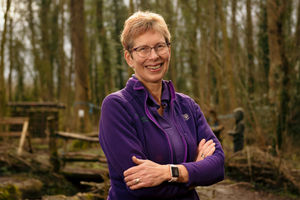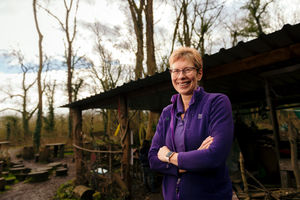Bumps, bruises and a childhood to remember
Climbing trees and playing in the mud have been cornerstones of many a childhood for generations.

But today’s youths may be missing out on those experiences amid society’s zealous approach to health and safety.
Risk taking and exploring the natural world have both been championed for the multitude of developmental and mental health benefits they provide.
But for parents it’s not always easy to let a child play in unusual environments without thinking of the potential dangers that lurk around every corner.
So helicopter parenting takes over, the children are sealed with bubble wrap, and the chances of them getting hurt – and learning from doing so – are squashed.
Research shows that the great majority of injuries kids sustain during risky outdoor play are minor and require little or no medical treatment.
Everyday life is full of risks and challenges so the earlier children can learn how to negotiate these and overcome them the better, experts say.
Around the region there are centres dedicated to helping youngsters and teenagers reap the benefits of the Great Outdoors and try new activities that will challenge them more than the local park playground – all in a safe environment.
One place that provides creative and outdoor learning is Wrekin Forest School, near Kynnersley north of Telford, which was set up by former primary school teacher Judie Ellis eight years ago.

It offers sessions that meet National Curriculum requirements as well as camping and bushcraft activities for all ages.
“We do everything from archery to wood crafts, low rope courses and cookery,” says Judie.
“It’s really good particularly for boys who may struggle inside a formal classroom situation. We do the traditional classroom activities but we do them outside so we will do counting but we will count cones or bird seed, we will do measuring but it will be measuring ingredients to cook outside.”
She believes children need to be able to take risks but she says teaching them how to assess and avoid the dangers first is important.
“They don’t get the opportunity to take many risks at school because everyone is so safety conscious and they don’t get muddy.
“It’s about allowing children to take small risks like climbing trees. They will only climb when they know where they are going to put their feet and they will know to stop where they feel comfortable.
“They will use penknives, air rifles and bow saws here. They are using dangerous pieces of equipment but we teach them to think of the worse thing that could happen and then how to work out how they can make sure that doesn’t happen. It’s about assessing the risks first, allowing them to take small risks and allowing them to get dirty,” adds Judie.
Challenge Academy based at Baggeridge Country Park in South Staffordshire provides outdoor adventure and high ropes activities for all ages and abilities.
Children can step outside their comfort zone by tackling the high and low ropes courses and swing through the trees along a zip wire.

Those as young as four – or older children who are less confident – can explore a series of tree houses and tackle different obstacles, suspended 12 ft high and supported by nets.
The aerial course aims to help them to learn new skills as they challenge themselves mentally and physically, all under the support and safety of nets.
“Spending time outdoors can reduce symptoms of depression and improve a child’s general wellbeing,” says managing director Mel Ellis.
“Being in natural surroundings has a calming effect which leads to feeling more happier, healthy and a sense of freedom, as it gives kids the chance to escape from the stresses of everyday life.
“It’s during play that children gain a deeper knowledge about themselves and the world around them. Using and navigating new equipment teaches new skills and helps to increase confidence and self-esteem.
“Take this play in to external environments where risks are slightly increased, and this gives children the chance to develop the ability to learn how to stay safe outside.
“There are also more opportunities for them to overcome obstacles and feel a greater sense of achievement in exceeding their limits.
He adds: “Getting children playing outside is also encouraging them to step outside of their comfort zone and putting them on the path to developing their independence.”
“Outdoors they are free to roam further than they are indoors, explore unfamiliar surroundings and deal with the unpredictable.
“Learning by trial and error and experiencing failure and success, helps children to overcome challenges they come across and become more fearless of whatever comes their way in the future.”





